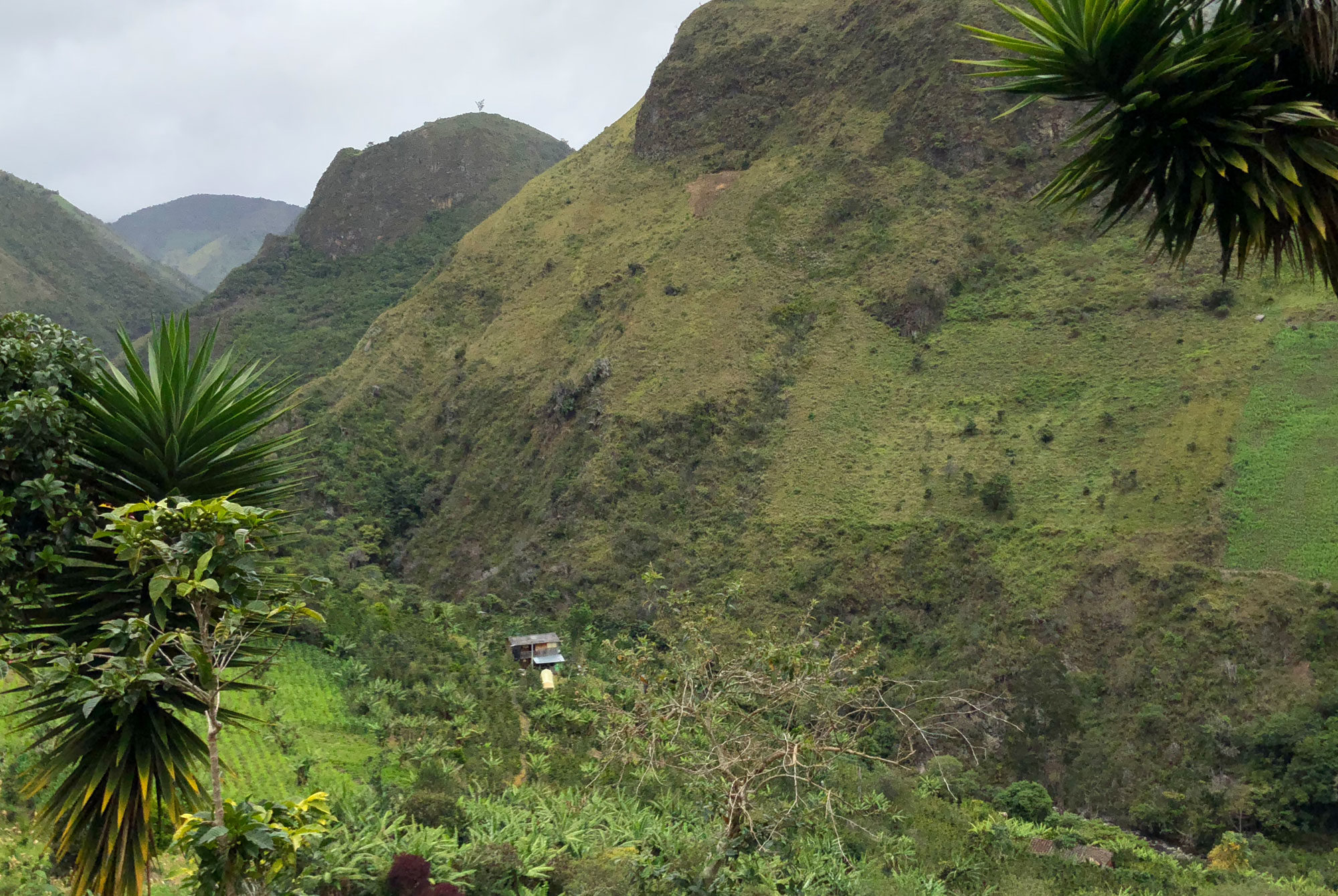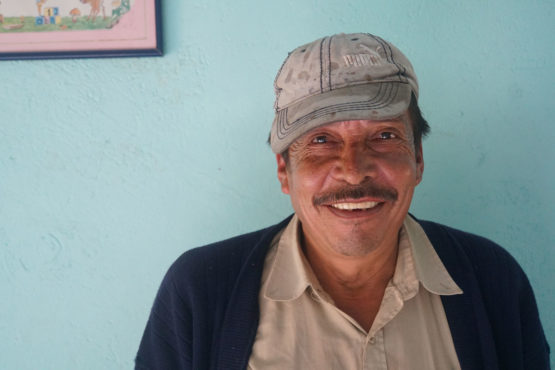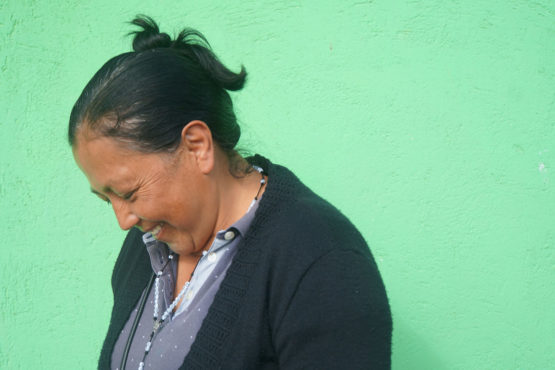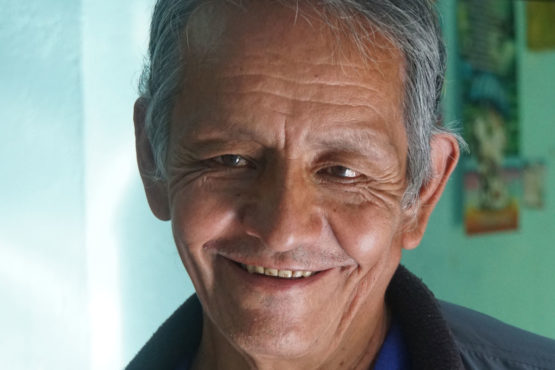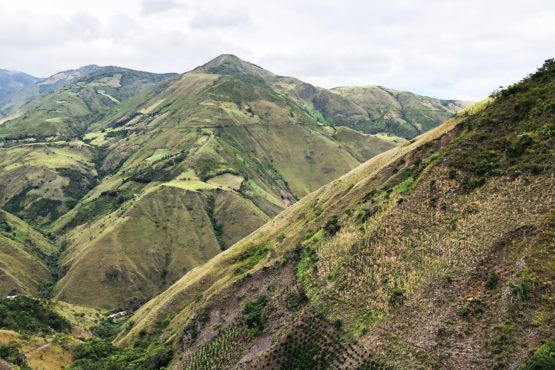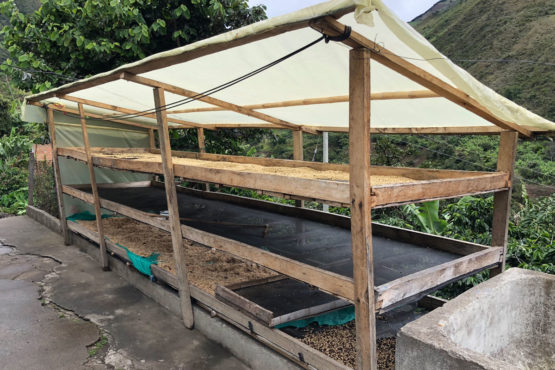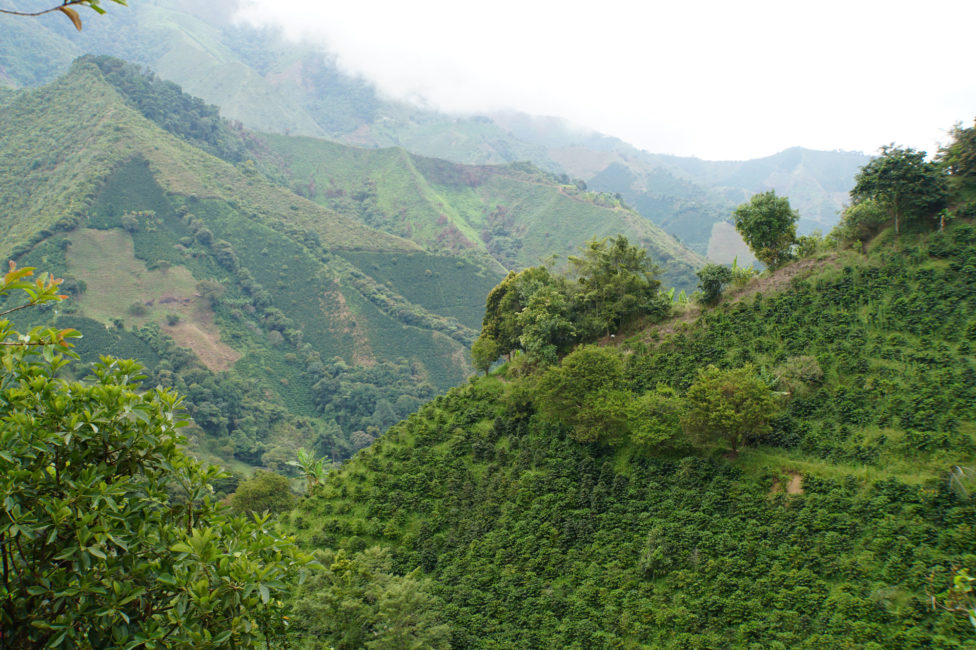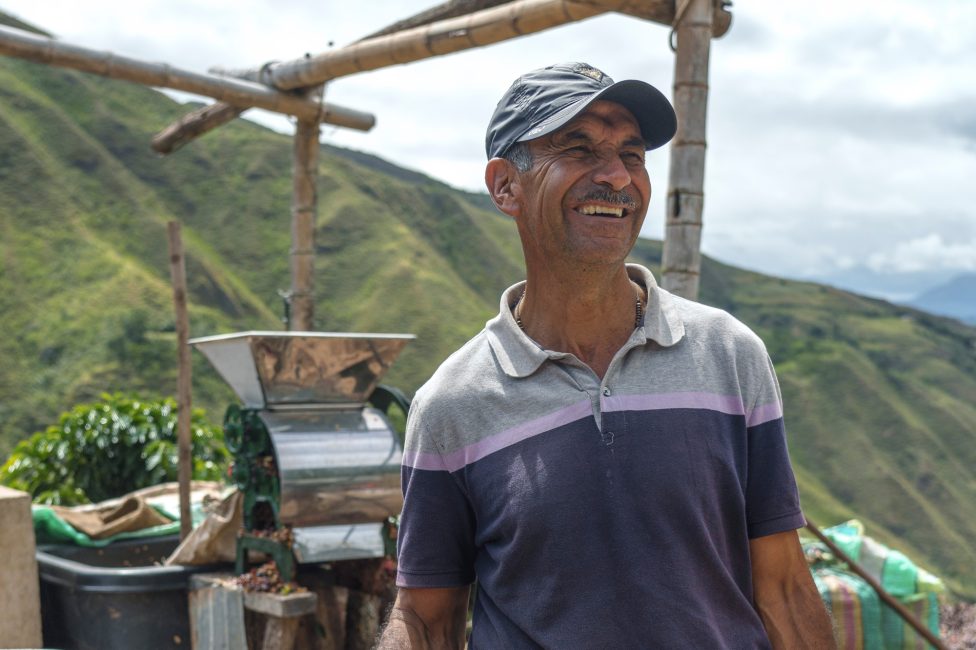Small Producers of Pompeya
Intensely sweet and floral, with jasmine and lemon blossom fragrance. Juicy blackcurrant, plum and rhubarb in the cup, with a syrupy body.
This coffee was produced by six small independent farmers who have small 1-hectare farms in the remote town of Pompeya, in Eastern Nariño, Colombia.
Tucked away in the upper reaches of the beautiful Juanambú Canyon, Pompeya is so small that its narrow streets can’t be found in google maps. The town sits at a major crossroads —where the tropical climate of the Amazons meets the cold winds of the Andes. The unique geography and climate of Pompeya provide the perfect conditions to produce exceptional coffee.
The six producers who produced this coffee have tiny 1-hectare farms, planted with Colombia and Caturra varieties that are located at a staggering 2,150m above sea level. This high elevation means that the fruit matures slowly, allowing sugars to develop and resulting in very sweet and complex coffees. The coffee is selectively hand-picked by the farmers and their families and processed at small mills located on their properties.
ABOUT NARIÑO
Nariño is located in Southwest Colombia, bordering Ecuador. Coffee in Nariño is grown at elevations that reach 2,200 metres above sea level, making it some of highest grown coffee in the world. It is typically very difficult to produce coffee at such high altitudes however Nariño’s proximity to the equatorial line and steep hills around the volcanoes provide a great angle for sun exposure, creating the right micro-climate for coffee plants to thrive. The high altitude of cultivation combined with warm tropical days and cools nights allows for slow maturation and development of the coffee cherry, giving time for concentrated sugars to develop in the fruit and resulting in a very unique, sweet, and complex cup profile from this region.
Until recently, much of Nariño’s potential remained largely untapped. This is in part due to the fact that most of the forty thousand coffee producers in Nariño are incredibly small (averaging less than 2 hectares each) and often, like these small producers in Pompeya, extremely remote. These factors, combined with ongoing conflict in the region has discouraged investment in coffee development and made it difficult for coffee buyers to access these exceptional coffees.
In 2010 – 2012, this started to change, thanks in large part to the Colombian Cup of Excellence which shone the light on two exceptional lots from the Buesaco municipality in Northern Nariño. This huge win made it clear to many growers from the region that their coffee had the potential to be sold as true specialty grade and that they had the opportunity to seek greater premiums than they were receiving through other certification schemes.
Today coffee is playing a big role in helping the community as they turn the page on the region’s violent past and build a more sustainable development. Many of them left the region during the worst part of the conflict in the 90s, but have since came back to continue their coffee tradition and rebuild their lives here.
Our export partner for this coffee, Pergamino, have worked hard in to pioneer the commercialisation of specialty coffee throughout Nariño, and have uncovered some stunning coffees and very dedicated producers in the process. They work closely with the producers to give them feedback on their coffees (provided by Pergamino’s expert team of cuppers) and provide top up payments when the coffee is sold at a higher premium.
Head here to learn more about the work of Pergamino.
HOW THIS COFFEE WAS PROCESSED
This coffee was processed using the washed method at each farm’s ‘micro-beneficio’ (mill).
The coffee was pulped using a small manual or electric pulper, and then placed into a fermentation tank, where it was fermented for 48 hours and then washed using cold, clean water.
It was then carefully dried (over 10–18 days) on a raised bed with plastic over the top which acts to protect the coffee from the rain and prevent condensation dripping back onto the drying beans. This bed has adjustable walls to help with air flow, and temperature control to ensure the coffee can dry slowly and evenly.
Once dry, the coffee was delivered to Pergamino’s warehouse, where it was cupped and graded, and then rested in parchment until it was ready for export.
